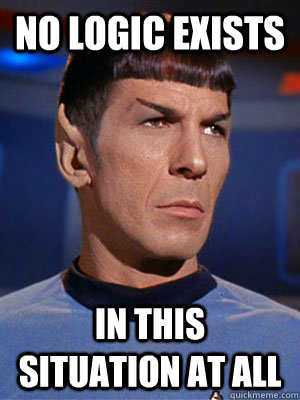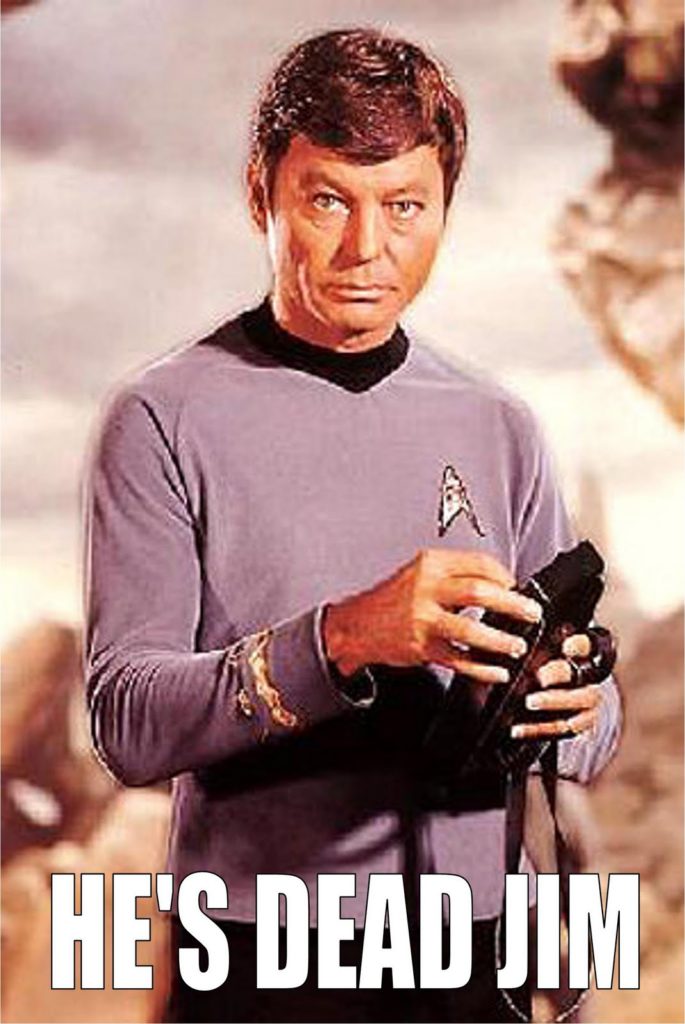Blogger Steve Hays has another crack at my inconsistent triad. As usual, I’ll omit his sins and cut a lot of irrelevant material. Basically, he tries his hand at a little ad hoc philosophizing about death. It doesn’t go well…
1. He repeated his definition: “To die is to lose all or most of one’s normal natural life functions.”
But God is not alive in that sense. Angels are not alive in that sense. Is there any evidence that 1C Jews or Christians thought incorporeal beings are alive in that sense?
One’s normal life functions are relative to one’s kind. Yes, they did think back then that God is alive, that he enjoys divine life-processes (whether temporal or timeless).
 2. Tuggy says that to disprove his inconsistent triad, it’s necessary to show that each proposition is true. But that’s a category mistake. That’s not what makes a triad of propositions logically consistent or inconsistent. Tuggy is shifting grounds.
2. Tuggy says that to disprove his inconsistent triad, it’s necessary to show that each proposition is true. But that’s a category mistake. That’s not what makes a triad of propositions logically consistent or inconsistent. Tuggy is shifting grounds. (Facepalm.) The triad is interesting because many will want to affirm all three. But on the face of it, they ought not, since it can’t be that all three are true. One sort of reply is showing that the three could all be true after all. (More on this below.) Occasionally, Mr. Hays will make a gesture in this direction, though he’s not yet given a real answer. And as I said in the podcast, other answers would be (1) saying which to deny and why (which I have done), or (2) showing that we should accept all three, despite their seeming inconsistency.
Suppose we say “Methuselah died”. From a philosophical standpoint, that’s deceptively ambiguous. What died? That depends on your anthropology.
Nope. What died is Methuselah, the human person. The dier is not at issue; it’s him. Yes, this will understood to have different implications on different views of human persons.
… suppose you define a complete human being as a union of a mortal body with an immortal soul. …We can posit this as a hypothetical…. If, according to our definition, Methuselah just is an embodied soul, then to say “Methuselah died” might mean the entire composite died. His soul died along with his body.
Again, there is no ambiguity about who or what dies. It is the man Methuselah.
If we wanted to be pedantically precise, we wouldn’t say “Methuselah died”, but “Methuselah’s body died”.
Nope. (Here come a bunch of analytic truths.) To die a human death is to lose a human life. Only a human being can lose a human life. If you’ve died a human death, then you were a human being. If dualism is true, a human body is not a human being.
By hypothesis, though – Steve is assuming dualism here – the body is not a man, but at most is a non-essential part of a man. So no, the dualist should not say that “Bob died” means “Bob’s body died.” It does not mean that. It means that Bob died, which (according to the dualist) involves the separation of soul from body, and normally the dissolution of the latter. And according to everyone, dying is losing all or most of one’s normal life processes. In this example, Bob (= a certain soul) suffers this.
Although Methuselah is an embodied soul, to say he died is not equivalent to the claim that all of him died. Not equivalent to the claim that both his body and soul expired.
If he just is (we’re assuming) the soul, that soul (= that human being) is the one thing here that can undergo a human death. “All of him” here is not supposed to be an additional human person who might die. Of course, “Meth died” does not imply that all parts of Meth died. But it does imply that the whole Meth died!
…you can devise a specious inconsistent triad:
i) Methuselah died
ii) Methuselah is immortal
iii) What is immortal can’t die
Specious, yes. That is not even apparently an inconsistent triad, unlike the one I’ve been discussing. (Meth may have become immortal since his death – like the Lord Jesus.)
 From the standpoint of substance dualism, the same individual is both mortal and immortal. That’s because he’s mortal and immortal in different respects. Mortal in reference to his body but immortal in reference to his soul. …I can stipulate the immortality of the soul for discussion purposes.)
From the standpoint of substance dualism, the same individual is both mortal and immortal. That’s because he’s mortal and immortal in different respects. Mortal in reference to his body but immortal in reference to his soul. …I can stipulate the immortality of the soul for discussion purposes.)OK, if you want. Nearly all substance dualists nowadays, of course, think that you and I are (presently) mortal. In general, you can say that a thing is F and not-F, if really it has a part which is F and a part which is not-F. E.g. She is pretty and ugly (pretty face, ugly rest of her body). That doesn’t work here, though. You’ve granted that the person just is the soul. So contrary to scriptural teaching and common sense, you’re asserting that all humans are always immortal. It doesn’t help to say that the body dies. Sure, even if the soul is immortal, the body may rot and fall apart. But it does not die a human death, the death of a human self – not on dualism, which we’re assuming.
It’s easy for special pleading to prevail here. But consider this scenario. Demon manages to permanently kick a soul out of his body. Then demon in that body gets hit by a truck. Body goes splat. Does demon die? No! He’s still got all the demon-life he had before. Just had his puppet taken away. Does anything die a human death here? Not in the truck accident. But in the initial episode, yes. The man, the evicted soul, has lost his normal life functions!
Why am I discussing substance dualism? As an analogy for the hypostatic union. Just as a human being is a composite being, Jesus is a composite being by virtue of the Incarnation. A union of two natures, one mortal and the other immortal.
I note in passing that this requires the natures to be concrete beings. Abstracta can neither die nor be alive.
That’s analogous to a union of two substances, one mortal and the other immortal. And in both cases, there are material and immaterial components. …Back to Tuggy’s “inconsistent triad”:
i) Jesus died
ii) Jesus was fully divine
iii) No fully divine being has ever died
But that suffers from the same equivocation as my “inconsistent triad” about Methuselah. To say “Jesus died” is a claim about his body, and not about the individual in toto. Just as Jesus is both mortal and immortal by virtue of a mortal body in union with an immortal soul, Jesus is additionally both mortal and immortal by virtue of a mortal component (his body) in union with an immortal component (his nature).
“Jesus died” is a claim about Jesus. In effect, the view you’re suggesting is just denying that Jesus died. Not the NT view of course. Perhaps you want to say that “Jesus died” should be counted as true because his body – or maybe you mean to say here, is human nature – died. That seems a mere verbal decoration, though, for a denial of a central gospel claim.

Mr. Hays seems to have a problem here seeing
what an all-are-true answer requires. The logical form of i-iii can be analyzed in medieval style as:
All J are D. (All things which are Jesus are things which have died.)
All J are F. (All things which are Jesus are things which are fully divine.)
No F is D. (No thing which is fully divine is a thing which has died.)
Or in modern style:
Dj (Jesus died.)
Fj (Jesus is fully divine.)
(x)(Fx -> -Dx) (For any x, if has died, then it is not the case that it is fully divine.)
Now as a matter of logic, no triad of either form can all be true; any two logically imply the falsity of the remaining one. The obvious thing to do, really, is to find a reason to deny one or more of the three, which is what I’ve done. Mr. Hays wants to say they’re all true, correctly understood. What he must do, then, is to show what their true logical form is, since it must not be one of the above analyses. This needn’t be done in symbols; one can use something close to normal English. But it’s not even clear that he wants to do this. Perhaps he thinks that iii should be denied, against the NT?
So far, he’ suggested changing the first to Db (Jesus’s body died). Db is indeed logically consistent with the Fj and (x)(Fx -> -Dx). But the NT teaching is that Jesus died, Dj. Does he really want to deny Dj? I doubt it. But neither has he shown how catholic two-nature theorizing reveals the true logical form of i-iii. Nor has he argued that i-iii should all be accepted despite their seeming inconsistency.
In sum, still no answer.
 2. Tuggy says that to disprove his inconsistent triad, it’s necessary to show that each proposition is true. But that’s a category mistake. That’s not what makes a triad of propositions logically consistent or inconsistent. Tuggy is shifting grounds.
2. Tuggy says that to disprove his inconsistent triad, it’s necessary to show that each proposition is true. But that’s a category mistake. That’s not what makes a triad of propositions logically consistent or inconsistent. Tuggy is shifting grounds.  From the standpoint of substance dualism, the same individual is both mortal and immortal. That’s because he’s mortal and immortal in different respects. Mortal in reference to his body but immortal in reference to his soul. …I can stipulate the immortality of the soul for discussion purposes.)
From the standpoint of substance dualism, the same individual is both mortal and immortal. That’s because he’s mortal and immortal in different respects. Mortal in reference to his body but immortal in reference to his soul. …I can stipulate the immortality of the soul for discussion purposes.) Mr. Hays seems to have a problem here seeing what an all-are-true answer requires. The logical form of i-iii can be analyzed in medieval style as:
Mr. Hays seems to have a problem here seeing what an all-are-true answer requires. The logical form of i-iii can be analyzed in medieval style as:
Hi Dale, I see that Steve Hays still struggles to explain his views in the context of analytic theology. Incidentally, I also wrote a blog post reply to you “The Christological Triad of Dale Tuggy” (http://theoperspectives.blogspot.com/2017/04/christological-triad-of-dale-tuggy.html). I wish to ask, Do you think that I answered your triad while supporting two-nature Christology? Pax, Jim
Hi James – will try to blog about yours and another reply in a day or two – stay tuned.
Thank you Dale 🙂
Comments are closed.